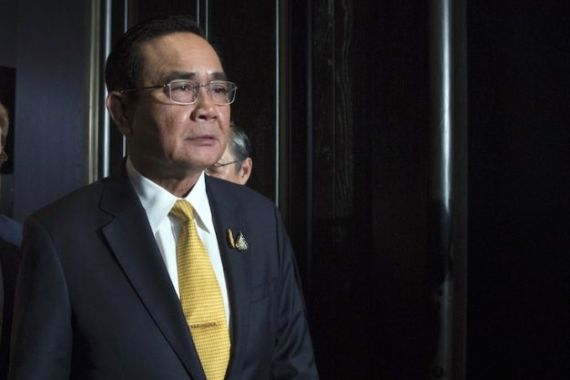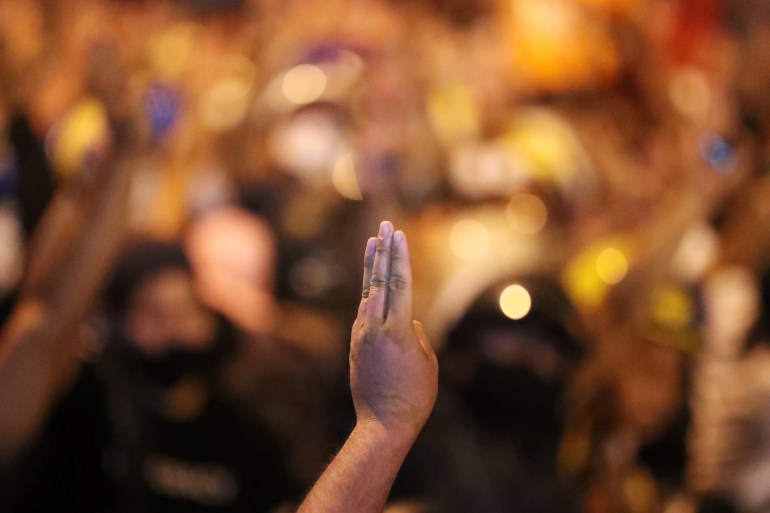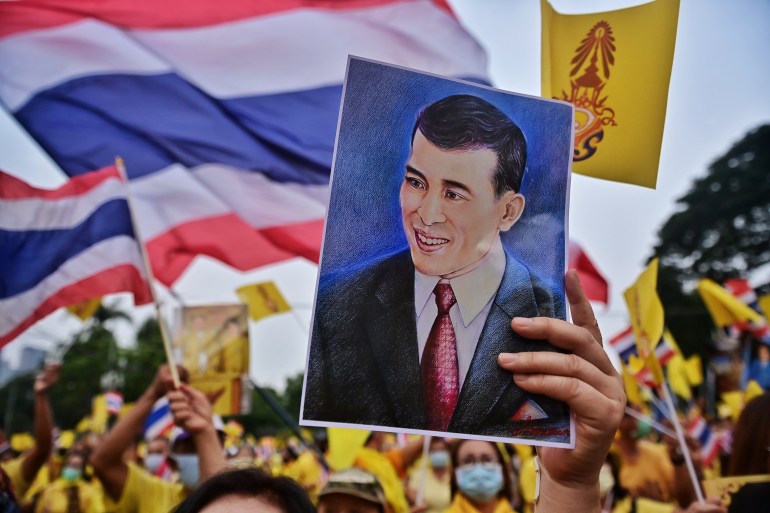Thailand: Prayuth refuses to resign despite protests
Months of anti-government protests have called for Prayuth’s resignation and reform to powerful monarchy.

Thai Prime Minister Prayuth Chan-ocha dismissed calls from opposition parties to resign during a special two-day session of parliament he had called to discuss months of protests demanding his departure and reforms to the powerful monarchy.
“I will not run away from problems. I will not leave my duty by resigning at a time when the country has problems,” the former army ruler told the assembly on Tuesday. The parliament’s entire upper house is chosen by the military.
Keep reading
list of 3 itemsThailand shuts down online TV channel, as protests continue
Thailand royalists show support for king
Protests that have brought tens of thousands of people onto the streets since mid-July are the biggest challenge in years to an establishment that has long been dominated by military men close to the Royal Palace.
King Maha Vajiralongkorn’s Palace has made no comment since the start of protests that have smashed a taboo on criticising the monarchy.
Prayuth said the rallies, which he referred to as illegal protests, needed to be brought under control.
“Though the people have the freedom to protest based on the Constitution, authorities need to control the illegal protests,” the prime minister said.
“We do not want to see clashes or riots in the country,” he added, accusing some protesters of “inappropriate actions”.

Opposition members of parliament told Prayuth to stop hiding behind proclamations of loyalty to the monarchy and step down. His critics said he engineered last year’s elections to keep power he seized in 2014. He said the ballot was fair.
“You’ve been in power for six-and-a-half years – five years under your coup and one-and-a-half years when you gained benefit from an undemocratic constitution,” said Prasert Jantararuangthong, party secretary of the opposition Pheu Thai party.
“I call for General Prayut to resign as premier, which would be a solution to solve all problems.”
‘Useless’
One of the protest leaders, Tattep “Ford” Ruangprapaikitseree, dismissed the parliament session as “useless”.
Prayuth said he had agreed to set up committees to study the problems, but claimed he did not know who he should talk to because “there are no leaders. They are all leaders.”
Some of the highest profile leaders are among dozens of people arrested this month in a crackdown under a week of emergency measures that were rescinded after they sparked much bigger protests.

Shows of support by royalists have so far been far smaller than those of anti-government protesters.
More than 1,000 people gathered in a central Bangkok park on Tuesday.
“We want to show support and encouragement to his majesty,” said Thatchapan Boriphet, 57. “I am neutral politically but I cannot stand it when there is a violation of the monarchy.”
The prime minister’s office shared an image of the demonstration on Twitter.
Protesters have accused the king of political involvement and marched to the German embassy on Monday to seek an inquiry into whether he exercised his powers during long stays in Germany, something Berlin has said would be unacceptable.
The two-day parliamentary session did not list the protests on its agenda, but was expected to discuss an incident earlier this month when protesters flashed three-finger salutes – a symbol of the movement – as the royal motorcade with Queen Suthida drove past.
“The protesters say it was not in the plan for the Queen to pass that way, but the government says she can go anywhere,” said Tankhun Jittitsara, one of the secretaries of House Speaker Chuan Leekpai.
“No one knows the truth so we’ll talk about that.”
Three activists were charged over the incident under a rarely used law banning “violence against the Queen”, which carries a maximum sentence of life in prison.